The EU-funded Human Brain Project (HBP) comes to an end in September and celebrates its successful conclusion today with a scientific symposium at Forschungszentrum Jülich (FZJ). The HBP was one of the first flagship projects and, with 155 cooperating institutions from 19 countries and a total budget of 607 million euros, one of the largest research projects in Europe. Forschungszentrum Jülich, with its world-leading brain research institute and the Jülich Supercomputing Centre, played an important role in the ten-year project.
News
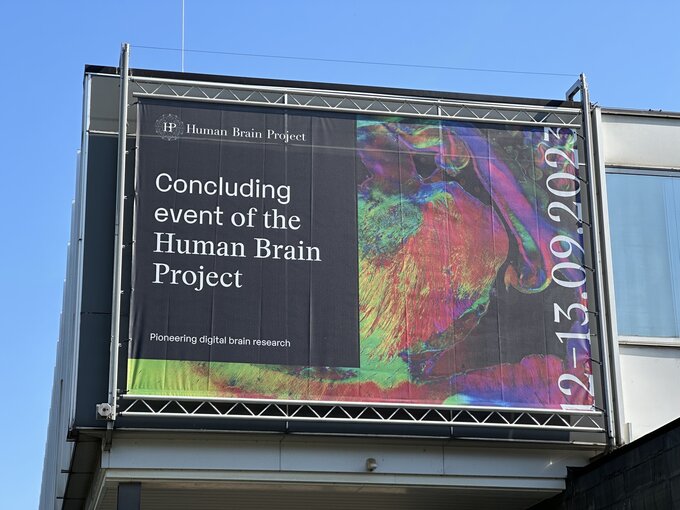
Human Brain Project celebrates successful conclusion
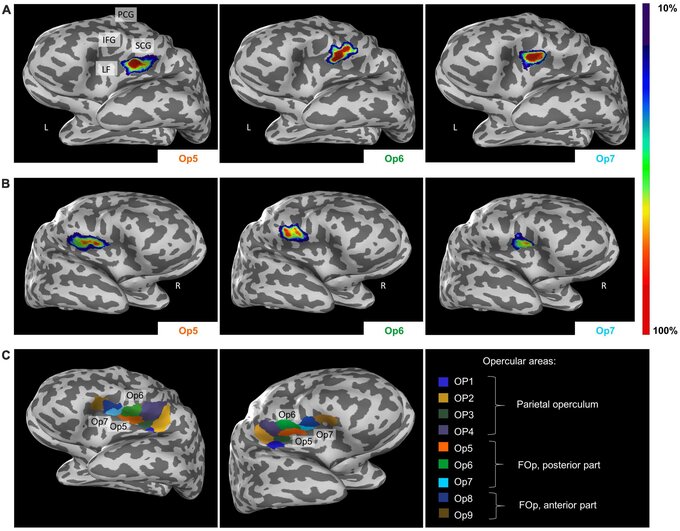
HBP researchers identify three new human brain areas involved in sexual sensation, motor coordination, and music processing
HBP researchers from Germany performed detailed cytoarchitectonic mapping of distinct areas in a human cortical region called frontal operculum and, using connectivity modelling, linked the areas to a variety of different functions including sexual sensation, muscle coordination as well as music and language processing.
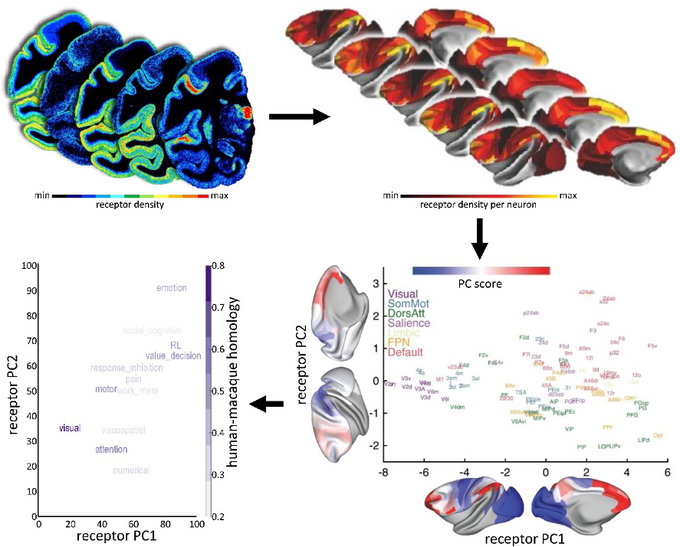
Human Brain Project study offers insights into neurotransmitter receptor organisation
Julich Brain Atlas researchers in collaboration with teams from the UK, the US and France have made advances on our understanding of the distribution of neurotransmitter receptors across the brain.
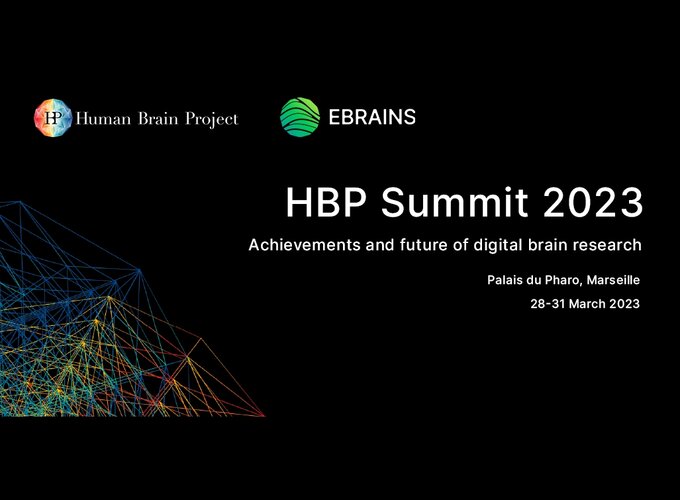
Registration for the Human Brain Project Summit 2023 is open
The Human Brain Project (HBP) is delighted to announce that registration for the HBP Summit 2023 is open. The event will take place at the Palais du Pharo in Marseille, France, from March 28-31, 2023.
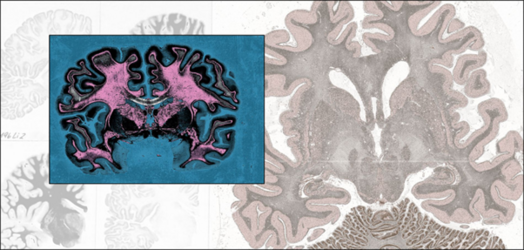
Unique brain collection to be digitised: Reception at the Cécile and Oskar Vogt Archive
The festive reception will mark the start of the digital indexing of the Vogt archive.

Nataliia Fedorchenko awarded place in prestigious Max Planck School of Cognition
Ukrainian brain researcher Nataliia Fedorchenko has been accepted as an associated PhD candidate at the Max Planck School of Cognition (MPSCog). She will carry out her PhD under the supervision of MPSCog faculty member Katrin Amunts at the Cécile and Oskar Vogt Institute of Brain Research at Heinrich Heine University Düsseldorf.
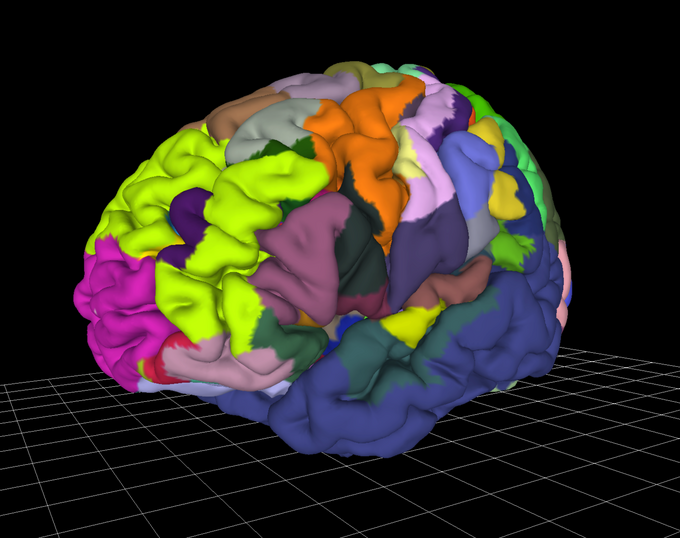
Multilevel brain atlases provide tools for better diagnosis
The multilevel Julich Brain Atlas developed by researchers in the Human Brain Project, could help in studying psychiatric and aging disorders by correlating brain networks with their underlying anatomical structure. By mapping microarchitecture with unprecedented levels of detail, the atlas allows for better understanding of brain connectivity and function. Researchers of the HBP have provided an overview of the Julich Brain Atlas in the journal Biological Psychiatry. The paper focuses on the cytoarchitecture and receptor architecture of the human brain, and how to apply the atlas in the field of psychiatric research.
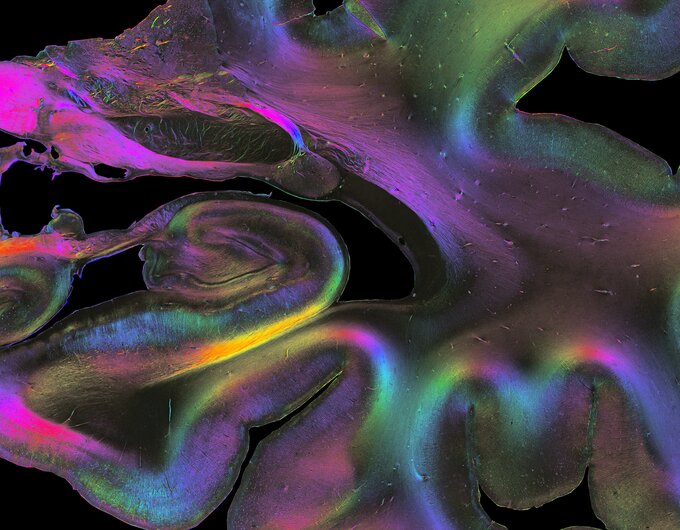
A combination of micro and macro methods sheds new light on how different brain regions are connected
To understand how our brain works, there is no getting around investigating how different brain regions are connected with each other by nerve fibres. In the most recent issue of Science, researchers of the Human Brain Project (HBP) review the current state of the field, provide insights on how the brain’s connectome is structured on different spatial scales – from the molecular and cellular to the macro level – and evaluate existing methods and future requirements for understanding the connectome’s complex organisation.
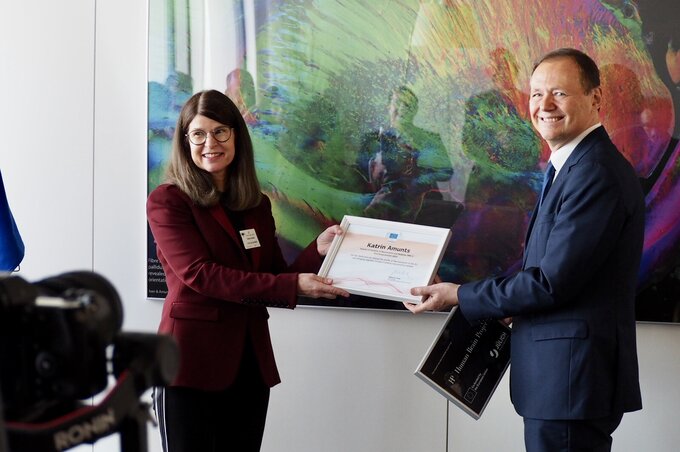
HBP image of human brain network exhibited at offices of European Commission
On 12 October, HBP Scientific Director Katrin Amunts and Tommaso Calarco, chair of the Quantum Community Network of the Quantum Flagship, presented two special pieces from Forschungszentrum Jülich to the European Commission in Brussels: an enlarged image of human brain fibres and a true-to-scale replica of the quantum computer "OpenSuperQ".